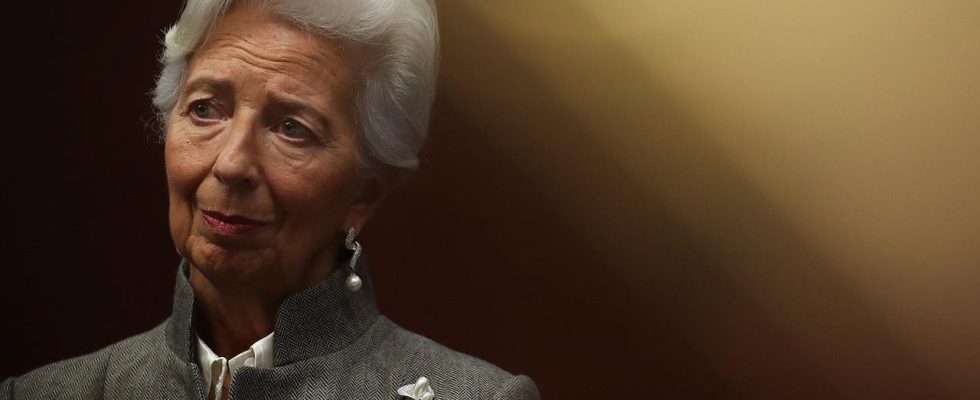In the fight against inflation, the European Central Bank is raising interest rates by 0.25 percentage points for the seventh time in a row. An end to the rate hikes could meanwhile be in sight.
The European Central Bank (ECB) continues to tighten the interest rate screw: the key interest rate for the euro zone rises by a quarter of a percentage point to 3.75 percent. That’s what the euro currency guardians around ECB President Christine Lagarde decided in Frankfurt. Experts had expected this increase.
The main refinancing rate, now at 3.75 percent, sets the rate at which banks can borrow money from the central bank for an extended period of time – at least a week. The deposit rate, which is more important for savers, has been 3.25 percent since today.
slowed down
The ECB is thus following the American currency watchdogs, the Federal Reserve, who had also announced a more moderate rate hike of 0.25 percentage points the previous evening. It is the seventh interest rate step in a row after the euro watchdogs said goodbye to their years of ultra-loose monetary policy in July 2022 and initiated the interest rate turnaround.
Despite the recent hike, the ECB has slowed down significantly with the current rate hike. Most recently, the central bank had raised key interest rates more sharply. In March, interest rates rose by half a percentage point.
The turbulence in the banking sector over the past few weeks is likely to have played a role that should not be underestimated in the fact that the central bank took its foot off the accelerator and raised key rates by just 0.25 percentage points. After the Credit Suisse crisis and the collapse of two US money houses in March, the First Republic Bank also had to be rescued a few days ago with a takeover by JP Morgan Chase. And with the US regional bank Pac West, which has now gotten into trouble, the next bank failure is even imminent.
inflationary pressures strengthened in April
Keeping inflation in check is the classic task of central banks. The higher the inflation, the more money is devalued. Consumers can afford less and less for one euro. If interest rates rise, private individuals and the economy have to spend more money on loans – or borrow less money. Growth is slowing, companies cannot simply pass on higher prices – and ideally the inflation rate is falling. At the same time, there is a risk that the economy will stall.
In the euro zone, inflationary pressure increased again somewhat in April. Consumer prices increased by 7.0 percent compared to the same month last year. In March, the rate had fallen significantly: from 8.5 percent in February to 6.9 percent. The ECB is aiming for a rate of two percent in the medium term. “Inflation is like toothpaste: it’s easy to squeeze out of the tube, but very difficult to put back in,” former Eurogroup chief Jean-Claude Juncker once warned.
How are interest rates going?
However, core inflation, which is currently the focus of much attention, declined somewhat in April. Core inflation removes volatile food and energy prices. According to the chief economist at VP Bank, Thomas Gitzel, the fall in core inflation can be seen as the first sign that a turnaround in inflation is imminent. Despite the rise in inflation, this is good news, but not yet an argument for the ECB not to raise interest rates any further. However, according to an ECB survey, the banks further tightened their credit standards in the first three months of the year speaks in favor of a more cautious approach. This is also likely to be a consequence of the previous interest rate hikes.
Commerzbank chief economist Jörg Krämer expects the rate hikes to come to an end in the foreseeable future. “Specifically, we assume that the ECB will raise interest rates again by 0.25 percentage points at the next two meetings and then take a longer break at a deposit rate of 3.50 percent.” In contrast to many financial market experts, Krämer does not expect an interest rate cut in the coming year. “Because the interest rate level is unlikely to be sufficient to push inflation back down to two percent in the long term.”

